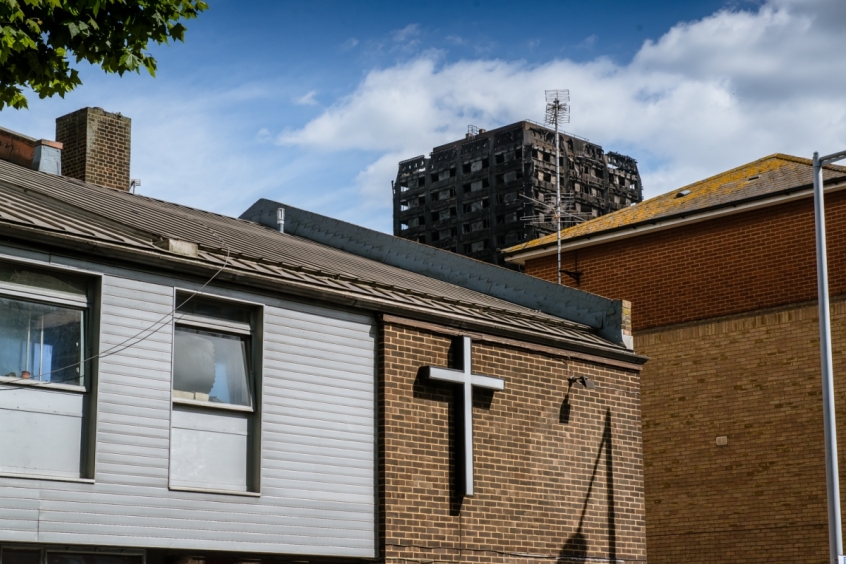
The Bishops of Manchester and Kensington have called on the Government to intervene in the row over dangerous residential block cladding to save residents from ongoing "limbo".
Writing in Inside Housing magazine, Bishops David Walker and Graham Tomlin said the situation had not greatly improved for people living in residential blocks still in cladding nearly two years on from the Grenfell Tower fire disaster in which 72 people died.
The bishops are backing Inside Housing's campaign calling upon the Government to fund the removal of dangerous cladding from private residential blocks following the tragedy in 2017.
The fire was caused by a faulty refridgerator but the cladding was also blamed for helping to spread the flames in the west London tower block.
A ban was later imposed on the use of aluminium composite material (ACM) in new residential buildings but dozens of existing private residential blocks across England are still clad in it; removal has only been carried out on a handful of them.
"Christian theology knows a bit about limbo – it isn't a position in which residents of dangerous towers should be left," the bishops said.
They said the people of North Kensington felt a "deep sense of betrayal" over the response to the disaster.
"The community around Grenfell Tower felt alienated even before the fire, feeling they had little control and say in decisions on housing and the local built environment that affected their everyday lives," they said.
"The fire itself, of course, had a seismic impact on the local community, which continues to live with the devastation that hit them on the 14 June 2017.
"Yet, even now, nearly two years on, things are not much better.
"Grief takes time to take its course, but is complicated when you feel that your brother, mother, aunt or friend died needlessly and that since then nothing much seems to have changed."
They said that many people in the area were anxious about toxic air and soil as a result of the fire and that some had ongoing mental health issues like depression.
Hearings for phase one of the public inquiry into the fire ended last December. Hearings for the second phase of the inquiry are due to be heard in January 2020.
The bishops said the delay was having a "significant" impact on residents and survivors.
"It is hard to move on with your life while so much remains unresolved, the causes of the fire remain unclear and those responsible for what happened have not been identified," they said.
They went on to warn that leaseholders were being trapped in the middle of a dispute over who should foot the bill for the removal of the cladding.
In some cases, they said, leaseholders were being presented with bills of up to £80,000 to have the cladding on their buildings removed "even though it is not their fault that the cladding was there in the first place".
"A stand off between government and private owners, each expecting the other to pay up, has left leaseholders stuck in the middle, with neither government nor freeholders are wanting to foot the bill, waiting for the other to blink first," they said.
The result, they said, was that leaseholders were "stuck in limbo, unable to pay the bills, yet finding it increasingly stressful to live in a property that feels vulnerable to the same fate as Grenfell".
They warned that the situation was "not going away" and would only get worse if left unresolved after studies found that residents living in buildings with cladding are experiencing higher levels of anxiety, sleeplessness, depression and suicidal thoughts.
They concluded, "The only obvious solution is for government to set aside a fund to enable the removal of cladding from residential blocks and set a deadline as to when it needs to happen by. Only then will this tragedy begin to find some resolution and people will be enabled to rebuild their lives."
CORRECTION: The original article incorrectly stated that the inquiry has been paused since December 2018. The inquiry hearings for phase one have ended and phase two hearings will begin in January. The article has been amended to reflect this.













